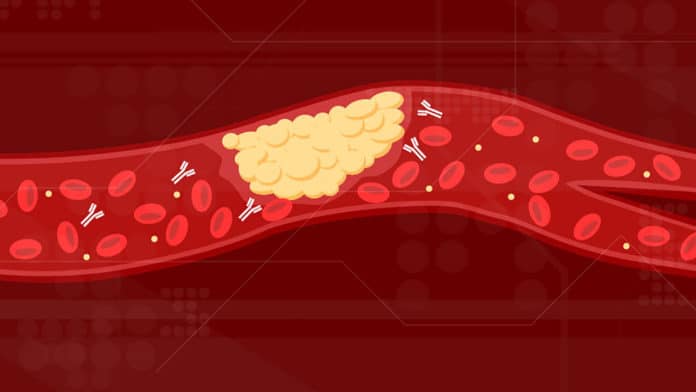Patients with COVID-19 are at high risk for thrombotic arterial and venous occlusions. Lung histopathology often reveals fibrin-based occlusions in the small blood vessels of patients who succumb to the disease.
Scientists from the University of Michigan have now identified what may spark them in up to half of patients.
Scientists found an autoimmune antibody circulating in the blood, attacking the cells and triggering clots in arteries, veins, and microscopic vessels.
In COVID-19, microscopic clots may restrict blood flow in the lungs, impairing oxygen exchange.
Co-corresponding author Yogen Kanthi, M.D., an assistant professor at the Michigan Medicine Frankel Cardiovascular Center and a Lasker Investigator at the National Institutes of Health’s National Heart, Lung, and Blood Institute said, “Outside of novel coronavirus infection, these clot-causing antibodies are typically seen in patients who have the autoimmune disease antiphospholipid syndrome. The connection between autoantibodies and COVID-19 was unexpected.”
“In patients with COVID-19, we continue to see a relentless, self-amplifying cycle of inflammation and clotting in the body. Now we’re learning that autoantibodies could be a culprit in this loop of clotting and inflammation that makes people who were already struggling even sicker.”
Co-corresponding author Jason Knight, M.D., Ph.D., a rheumatologist at Michigan Medicine, said, “Half of the patients hospitalized with COVID-19 were positive for at least one of the autoantibodies, which was quite a surprise.”
In this study, scientists found that about half of the patients who were very sick with COVID-19 were exhibiting a combination of high levels of both the dangerous antibodies and super-activated neutrophils, which are destructive, exploding white blood cells.
Scientists studied the explosive neutrophils and the COVID-19 antibodies together in mouse models. They wanted to determine if this could be the dangerous combination behind the clots.
Kanthi said, “Antibodies from patients with active COVID-19 infection created a striking amount of clotting in animals—some of the worst clottings we’ve ever seen. We’ve discovered a new mechanism by which patients with COVID-19 may develop blood clots.”
Scientists noted, “these findings aren’t yet ready for clinical practice, but they add a new perspective to the robust thrombosis and inflammation research in patients with COVID-19.”
Kanthi, Knight, first author Yu (Ray) Zuo, M.D., and colleagues now want to know whether severely ill patients with high levels of these antibodies would have better outcomes if they are blocked or removed.
Journal Reference:
- Yu Zuo et al. Prothrombotic autoantibodies in serum from patients hospitalized with COVID-19. DOI: 10.1126/scitranslmed.abd3876
